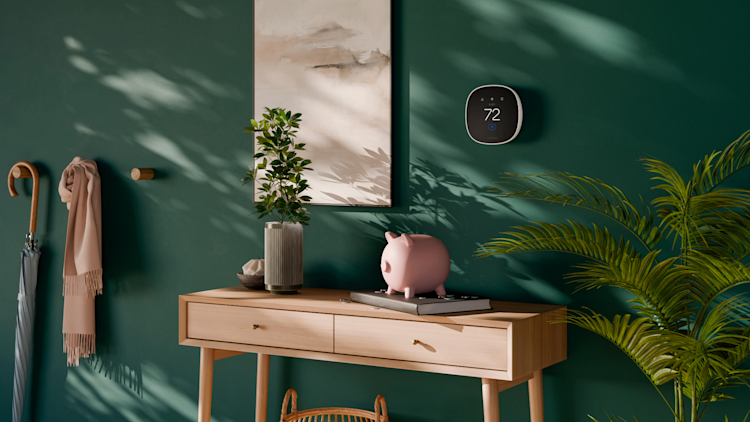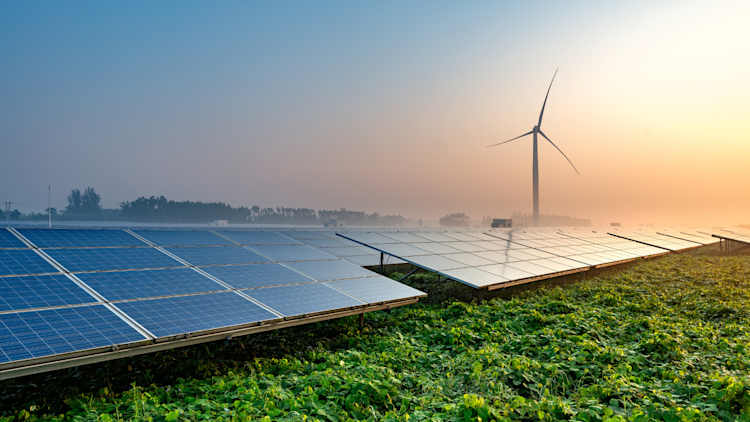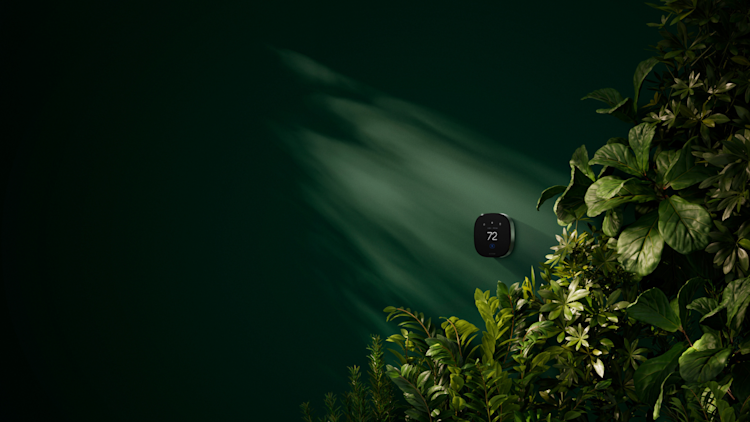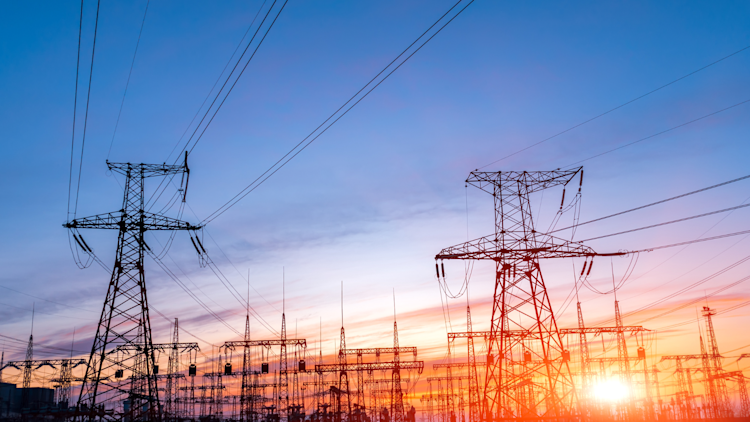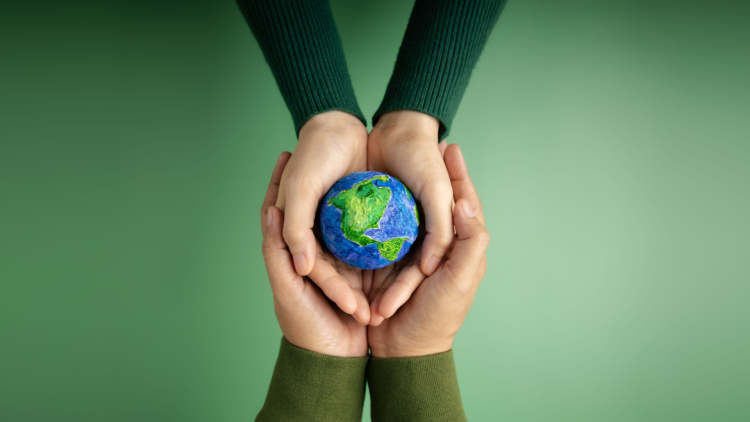ecobee and Generac’s Green Future
For Earth Month, ecobee’s and Generac’s CEOs sat down to discuss how both companies are investing in our planet.
by ecobee on 04/01/2022 in Better Planet
10 min read
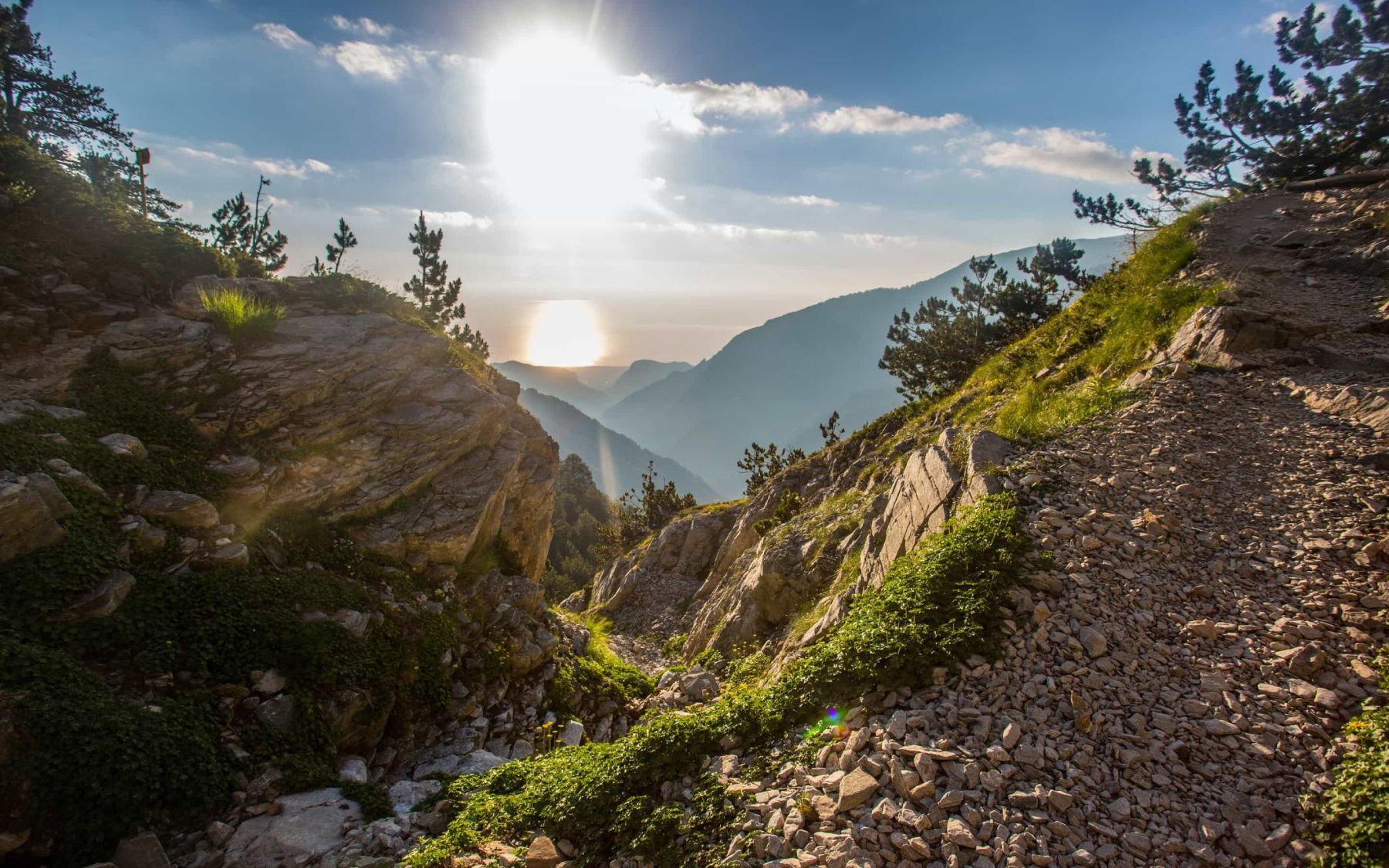
In late 2021, ecobee was acquired by Generac, an energy technology company best known for producing home standby generators. Generac has acquired several companies with a planet positive mission, like ecobee, in the past several years, and has added clean energy products in areas including solar and battery storage to its portfolio.
For some, the idea of a smart home company founded in 2007 and a generator company founded in 1959 joining forces might be surprising. But for ecobee CEO Stuart Lombard and Generac CEO Aaron Jagdfeld, it’s a perfect match. Both companies believe in a future in which our homes take care of us and are comfortable, safe, resilient, and efficient. As part of the companies’ shared vision, ultimately, our homes will work with other homes to consume, store, and generate energy from renewable sources to help deliver a carbon neutral future.
Since this year’s Earth Day theme is “Invest in Our Planet,” we sat down with Aaron and Stuart to learn more about how ecobee and its parent company, Generac, are investing in our planet and in a clean energy future.
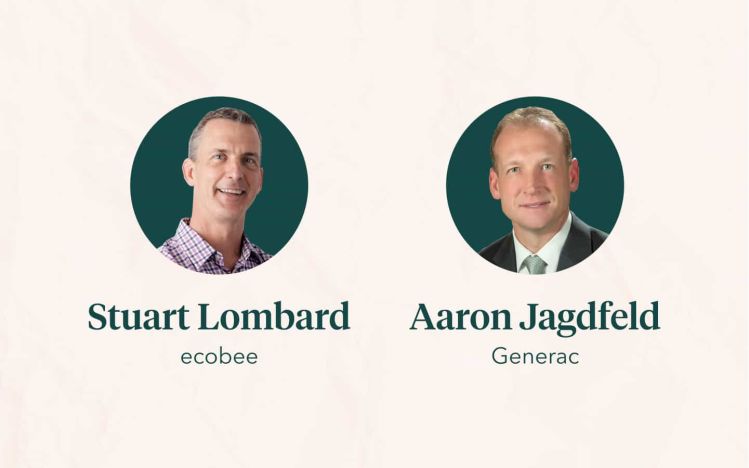
The theme for Earth Day is “Invest in our planet.” What does that mean to you? How do you think it can be applied to our work at Generac and ecobee?
Aaron Jagdfeld: For us at Generac, the investment comes partly from acquisitions of companies that do this very well, like ecobee, so that we can support them in their mission. But also, the investment comes down to finding the right balance between sustainability and profitability.
When you introduce a new product, the conventional way has always been to investigate how much it will cost us to develop and produce the product, and for how much we can sell it.
We're rapidly starting to understand that there's more to it than just the cost of the product and development. We must now consider the total cost of the impact of our products, on society and the planet. I don't know if we've always looked that far ahead in the business community.
Now, the questions we must ask as business leaders include: what is the cost to society? What good can we do? What are the benefits that can come from the introduction of this product? How much impact do we have on the Earth itself?
Maybe we hadn't considered the reduction of greenhouse gases as a core net positive that our products can achieve. It's a very different way of thinking about things, but we must consider that with every new product, service, and acquisition today.
Stuart Lombard: At ecobee, we have teams working hard to make investments and improvements considering the environmental impacts of our products, because it is one of our founding principles. We also believe that reducing the environmental impact of our products makes us a better business.
For our customers, it means we are constantly improving our products and updating them with new energy-saving features. The changes may be big or small. Whether it’s improving our solar and storage options or integrating thermostats and generators to achieve better outcomes, or whether we reduce our shipping costs and emissions by reducing the volume of what we ship, all of these items add up.
Everyone at ecobee is energized by trying to drive better business outcomes, and better outcomes for the planet.
We must now consider the total cost of the impact of our products, on society and the planet.
Can you describe your vision for the future of the Generac and ecobee smart home? What energizes you about the potential there?
Aaron: For some people, the idea of a generator company combining forces with what many consider a thermostat company forces them to scratch their heads a bit. But when we explain what we're really after, they understand. For us, it’s about the idea of the home as an energy ecosystem.
We see an opportunity to take one of the highest energy-use areas of the home, the HVAC system, and combine that with our view that the home’s energy system should be more than just a utility bill. It should be an interactive process.
Rather than just going out and buying a thermostat to brand as our own, we wanted to work with a company with existing intelligence and a system that can control the whole home energy ecosystem.
Bringing these two companies together allows us to combine great skill sets. We can now work to put that all together into a cohesive system, where you can generate your own power, you can store some of that power for later, you can control how much you consume, and maybe you can even export the energy you don’t use back into the grid. You put all that together, and that's how we saw what we were missing.
At Generac, we needed greater fidelity in the control agent, the HVAC system, and the intelligence that comes with what the ecobee team has developed, from the smart thermostats to the SmartCamera and smart sensors that provide context about what is going on in the home. Those elements become an important part of the home energy ecosystem and are essential pieces of our future developments.
Stuart: Generac views the home as a sanctuary, but also understands that homes can have a significant environmental impact. At ecobee, we share that view.
So how do we reduce the environmental impact of our homes? We have an opportunity not only to deliver intelligent devices, but also to deliver value to customers in the form of a home that is comfortable, safe, resilient, and efficient.
Your home consumes energy whether it comes from the grid, through generators, or solar and storage. And we can make how you consume energy more intelligent by providing you with energy efficiency, savings, and comfort all at the same time. As severe weather events become more frequent due to climate change, it’s critical to be able to help make homes more resilient.
The conversation around sustainability has often included the “green tax,” or the idea that sustainable solutions are more expensive or don’t work as well. But now, we can create solutions that are less costly to operate, save people money, make their homes healthier, and more comfortable, and have less impact on the environment. That is a win-win situation.
Between ecobee and Generac, we have a group of teams working on a series of products and services that no one else in the industry has, which allows us to create an incredibly unique value proposition for our consumers that no one else can deliver.
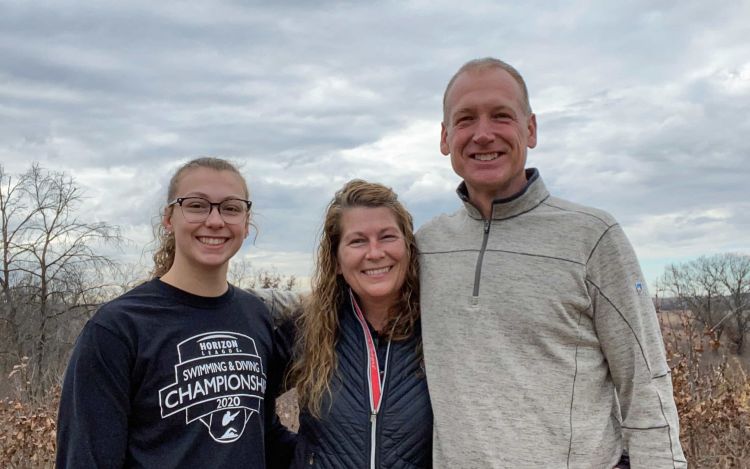
We all have a role in mitigating the worst impacts of climate change, but lawmakers and companies arguably have an even more significant part. What is your advice to fellow CEOs and people in positions of power looking to make a greater difference inside or outside their companies?
Aaron: As a company, we have broadened our product portfolio over the last three or four years. We had to consider that there may come a day when internal combustion engines don't exist anymore because they rely on fossil fuels. But we also knew we wanted to remain relevant and leverage a lot of the good that we have done. Over the past several decades, we have supported people’s homes and provided critical energy resources, especially in times of crisis.
The product itself is evolving to one that has less of an impact on the planet. Still, as a business, we can translate the learnings we’ve had and apply them to newer technologies.
That journey is frightening, but ultimately, rewarding. My advice to other leaders is to embrace new technologies that can help you reduce the impact on the planet.
As leaders, we may not always be 100% confident that it will work out, but the alternative is to not move towards a more sustainable future, to not innovate, which isn’t an option for us.
Stuart: I’ve been really impressed with how the Generac team proactively began investing in low carbon intensive technologies to progress towards the future. Generac has made some great strides into the clean energy space that can potentially influence other companies.
As companies and as leaders, we need to think about the future: what will customers want? What solutions are necessary for the future? We are also citizens in the communities we live in and so thinking about how we make our communities more sustainable is critical to that future planning.
In terms of advice for other people, one of my favorite artists is Billy Bragg, and he said “revolution is just a t-shirt away.” We don’t need government to make change happen. As individual citizens, we all have tremendous power. Each of us can make positive changes in our own lives. And if you can get like-minded people to work with you, you can increase that power greatly.
We all make decisions, but if you add the impact on the Earth to that decision-making criteria, you can come up with some great outcomes, big or small.
When we started, people said to me, “No one cares about thermostats. Why are you focusing on thermostats? It’s a stupid idea.” Yet, ecobee customers have collectively saved enough energy to take all the homes in Los Angeles off the grid for a year. That’s a massive impact in 15 years. So, my advice to other people would be, don’t be intimidated by the size of the challenge. Just get started, get people to join you, and you never know how much impact you can have.
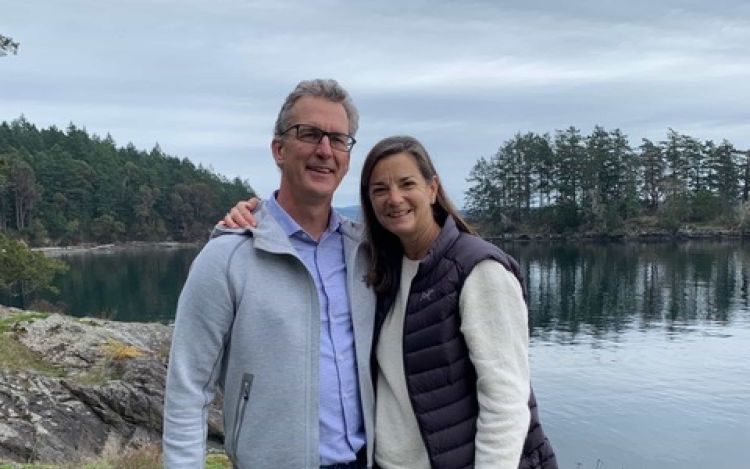
As individual citizens, we all have tremendous power. And if you can get like-minded people to work with you, you can increase that power greatly.
What makes you hopeful for the future?
Aaron: What makes me hopeful for the future is that we have demonstrated an ability to be successful with these newer technologies.
Compared to where we were five, six, or seven years ago, we all feel more driven about the positive impact we can have.
As Stuart said, people want to make a difference. For a long time, we always thought our positive difference was helping people in emergencies by producing a generator that could help them get their power back on. But now, we’re able to take that a step further to help them have a positive impact on the environment. It gives me hope to transition to renewable energy.
Stuart: On a macro basis, we are making progress against climate change, and I think it's one of the things that people don't see. In 2015, we faced an estimate of 4°C of warming above pre-industrial levels by 2100. But only six years later, that number is down to 2.7°C.
We also have incredible awareness right now compared to 20 years ago. We have a large group of people who are very energized about the environment and climate change. It’s no longer considered “a radical faction,” but just everyday people who want to do the right thing.
And if you look at what's happening with investments in solar, storage, electric vehicles, cycling, and reducing deforestation, we are making strides, even if it doesn't always feel that way. Although we still have a lot of work to do, I'm optimistic.
On a micro basis, at ecobee and Generac, we have built great teams and a fantastic array of innovations, technologies, and channels. That combination of strengths is something that no one else has. It makes me excited about the future.
Did you enjoy this article?
Thanks for letting us know!

